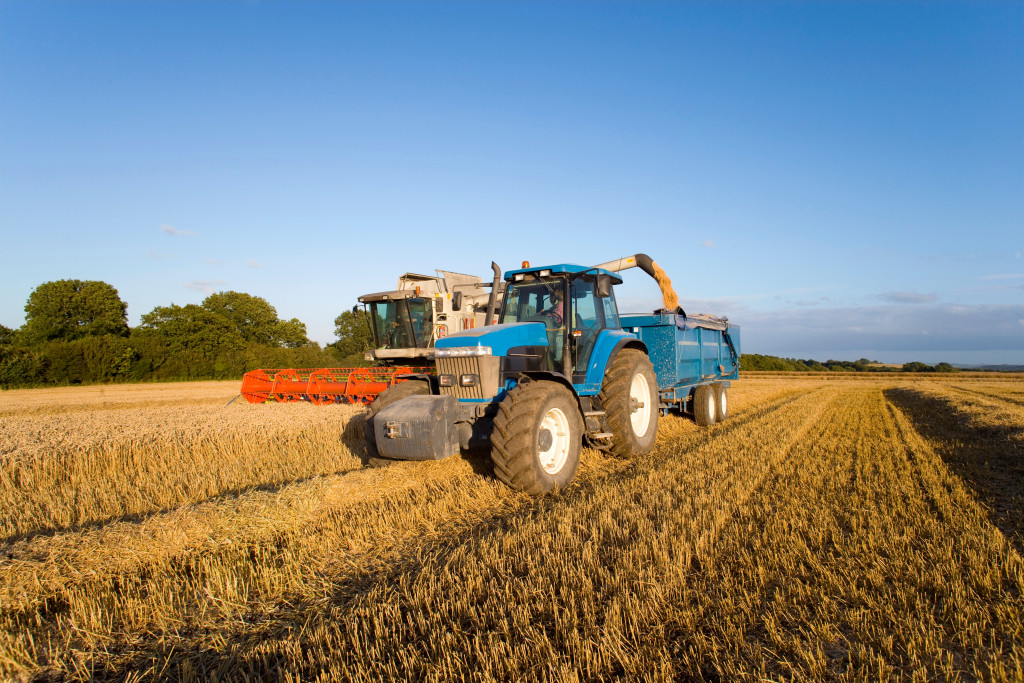• Local farms are challenged by larger corporations, lack of resources and government support, rising labor costs, and unpredictable weather.
• Shopping at local farmers’ markets and joining a CSA program can help support these farms.
• Spreading awareness and volunteering with farm work is also beneficial for local farms.
• Donating can provide valuable assistance to small farms in terms of productivity and profitability.
• With a collective effort from individuals, communities can ensure that local farms remain viable for future generations.
The local farming industry has been a cornerstone of many communities for generations, providing fresh produce and supporting the local economy. Unfortunately, there is a growing trend of small farms in our communities struggling to stay afloat. Here are reasons why local farms may be failing:
Competition from large farms
With the rise of large corporate farms that are able to mass-produce food and distribute it across the country, smaller, local farms find themselves competing against much larger operations with more significant economies of scale. This can make it difficult for these smaller operations to compete on price alone and disadvantage them significantly.
Limited access to resources
Many small farms lack access to resources such as capital, technology, and land that larger operations have access to. This can limit their ability to improve production efficiency and remain competitive. Additionally, they often don’t have the resources or personnel necessary to develop marketing strategies that will help them reach new customers or increase brand awareness.
Rising labor costs

Another challenge facing small farmers is rising labor costs due to minimum wage increases and other factors such as health care costs required by law for employees. The cost of labor can quickly add up for smaller farms with fewer employees compared to larger operations with more staff members who can share the burden of paying these expenses.
Unpredictable weather patterns
Climate change has led to increasingly unpredictable weather patterns worldwide, resulting in increased risk for small farmers who rely on a consistent climate for their crops and livestock production. In addition, severe weather events such as droughts or floods can wreak havoc on crops and lead to losses for farmers who are unable to adequately prepare or respond quickly enough when disaster strikes.
Lack of government support
Small farmers also face an uphill battle regarding government support, both in terms of financial assistance and regulations designed to protect them from unfair competition or exploitation by large corporations. The lack of government support puts these already struggling farmers at an even more significant disadvantage, making it even more difficult for them to stay afloat in today’s competitive market environment.
How you can help
Fortunately, there are steps that you can take to help support local farms in your community. Here are things you can do:
Shop at your local farmers’ markets and stores

By buying locally grown produce, you’re not only supporting the local economy but also helping to keep small farms in business.
Join a CSA program
A CSA is a subscription service for locally-grown produce where customers purchase a share of crops from a local farmer at the onset of the growing season. By joining a CSA program, you are helping to ensure that farmers have a steady source of income throughout the year.
Spread awareness
Educate yourself on local farming issues and share this knowledge with friends, family, and your wider community. This will help spread awareness of the challenges faced by small farmers and encourage more people to support them.
Become a volunteer
Local farms often seek volunteers to help with farm work such as harvesting, planting, weeding, etc. Volunteering is a great way to contribute directly to the success of local farms while also gaining valuable insight into how they operate.
Donate
Consider donating to local farms or organizations that are working to support them. Your donation doesn’t have to be monetary. It can be in the form of tools, supplies, or equipment which can make a huge difference for small, local farms.
For example, you can donate tractors to help farmers increase their productivity. But if you do so, it would also be helpful if you aided them in maintaining the tractors and using them correctly. You can refer a professional tractor maintenance service provider to the farm owners to ensure that their machines remain in top shape. These professionals will assist in repairing and maintaining tractors, mowers, and other farm machinery. They also offer troubleshooting advice and can help with parts replacement.
Clearly, local farms in communities are struggling to stay afloat and need as much support as possible. By shopping at farmers’ markets, joining a CSA program, spreading awareness of the challenges small farmers face, volunteering with farm work, or donating tools and supplies, you can help ensure these operations remain viable for future generations. Additionally, helping them maintain their tractors and other machinery through professional maintenance services will further increase their productivity and profitability.


